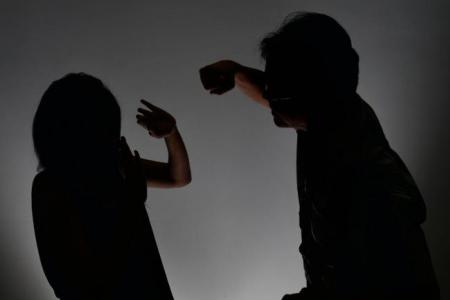More will be done to help vulnerable victims of sexual crimes and family violence: Shanmugam
The police will be doing more to protect the vulnerable, including taking a more holistic and victim-centric approach in their management of victims of sexual crimes and family violence, as well as persons with suicidal tendencies.
This year’s theme for the Police Workplan Seminar held is Policing with a Heart, Impacting Lives with our Partners. This is a significant move away from previous years when the annual event focused on technology enhancements and new weapons.
In a statement on Tuesday (April 26), the police said that even though their mission is to prevent, deter and detect crime, they are also aware that the factors driving criminal behaviour are multifaceted and require intervention beyond just law enforcement.
In a pre-recorded speech at the seminar, Law and Home Affairs Minister K. Shanmugam noted that sexual crimes have been on the rise, and the police will also be doing more to deal with family violence.
The number of family violence cases investigated by the Ministry of Social and Family Development rose by 13 per cent, from about 1,310 cases in 2019 to 1,480 in 2020.
To support these vulnerable victims, the police will work with social service agencies, said Mr Shanmugam, who also recognised that offenders may face difficult circumstances and socio-economic problems that contribute to their offending behaviour.
Under initiatives such as the Home Team Community Assistance and Referral Scheme, social workers will be called in, after police intervention, to identify the socio-economic issues leading to offending behaviour.
Mr Shanmugam gave the example of a man who had breached a personal protection order his wife had taken against him in February 2020.
"He was facing marital issues, lacked social support... living alone. With the help of social workers and adequate befriending support, he is now coping better and has not breached the personal protection order ever since."
Mr Shanmugam outlined three key initiatives the police will be embarking on to protect the vulnerable - partnerships, training and the reorganisation of resources.
Since March 2021, the police have partnered the Institute of Mental Health (IMH) to pilot a crisis response team that will provide care and support to persons with suicidal tendencies.
In 2020, Singapore reported 452 suicides, a 13 per cent increase compared with the 400 cases in 2019. This is the highest number since 2012.
When the police are alerted to a case of attempted suicide, they will call a dedicated hotline that will connect them with IMH staff.
Upon activation by the police, two IMH psychiatric nurses will provide an on-site assessment of the person's mental health and suicide risk to determine how the case will be managed.
To date, the crisis response team has received more than 2,000 calls. The vast majority of such cases are immediately taken to IMH for further assessment due to reasons such as suicide risk and the need for further treatment of underlying mental health conditions.
Other interventions the nurses may recommend include working with caregivers on a safety plan if the person has calmed down and referring them to community resources such as family service centres for support.
Dr Jared Ng, a senior consultant and chief of IMH's department of emergency and crisis care, noted how the intervention recommended depends on factors such as the risk and protective factors at play.
He said: "We look at whether the person has drug abuse, alcohol abuse, loneliness, social isolation, a history of suicide attempts. Protective factors usually (include) the presence of family members, emotional support, all these factors we take into account when coming up with an assessment of suicide risk factors."
Training is another big component the police will be focusing on as the Sexual Crime and Family Violence Command is set up by 2023, together with the formation of a dedicated Family Violence Team, to provide victims of sexual crimes and family violence with more support.
Mr Shanmugam said: "Police officers will undergo family violence sensitivity training to recognise signs of family violence and better support abuse victims. Police officers are also trained to handle sexual crime victims with dignity and respect to reduce the likelihood of re-traumatisation."
With the reorganisation of resources, victims of sexual crime will soon have more privacy and convenience when they undergo forensic medical examinations and interviews after lodging a report.
The police are redesigning the OneSAFE Centre at the Police Cantonment Complex so that sexual assault victims will have a dedicated victim care area equipped with interview rooms, medical examination rooms, washrooms and private rooms for victims to rest in.
The redesigned centre is targeted to be rolled out by the first half of next year.
The police will also be working with stakeholders to expand the eligibility criteria so that more victims can benefit from its multi-disciplinary interview model.
Under this model, which currently applies to young victims of intra-familial sexual abuse, victims need to relate their experiences only once to a combined team of police officers, medical professionals and child protection officers.
The police said: "Given the grave nature of sexual crime offences, it is important to ensure that victims are not re-traumatised during the investigation process."
Get The New Paper on your phone with the free TNP app. Download from the Apple App Store or Google Play Store now


